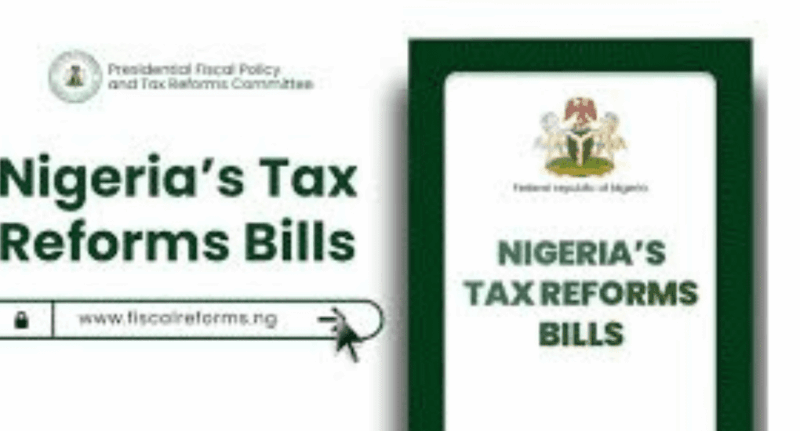Nigeria is tightening its tax regulations, imposing stricter Value Added Tax (VAT) rules on digital services. This applies to foreign suppliers, such as streaming platforms, e-commerce platforms and cloud service providers. These changes are intended to boost revenue and level the playing field for local businesses.
The country’s digital economy is flourishing. Streaming services like Netflix, cloud platforms like AWS, and e-commerce companies are flourishing. These companies generate a significant amount of revenue from Nigerian customers, yet most of them do not have a physical presence in Nigeria. This has made tax collection difficult, hence, the Federal Inland Revenue Service (FIRS) is stepping in to fill this void.
President Bola Ahmed Tinubu recently signed the Nigeria Tax Act, 2025, which includes some key reforms. Among them are new requirements for non-resident digital service providers. The Act builds on previous amendments, such as the Finance Acts of 2019-2023 and the Value Added Tax Order of 2021. These laws expand VAT’s scope to include digital services.

The updated regulations require foreign suppliers to register for VAT in Nigeria, currently at 7.5%. This includes providers of digital services consumed within the country. Streaming platforms, cloud computing, online advertising, and digital marketplaces.
Under the new rules, foreign suppliers must:
– Register with the FIRS if their services are consumed in Nigeria.
– Collect and remit VAT on business-to-consumer (B2C) transactions.
– Issue compliant invoices and report transactions per Nigerian standards.
For business-to-business (B2B) transactions, the reverse charge mechanism applies. This means Nigerian businesses receiving services from foreign providers account for the VAT. However, foreign suppliers must verify the buyer’s VAT registration status.
Why the stricter VAT registration targeting foreign digital service providers?
Over 120 countries around the world charge VAT on digital services provided by non-residents. South Africa, a pioneer in Africa, enacted similar rules in 2014. Nigeria, on the other hand, has a lower VAT rate of 7.5% than many of its peers. The rates in South Africa are 15%, in Ethiopia 15%, and in the Philippines 12%. This lower rate could make compliance less burdensome for foreign providers.
The reforms are also consistent with the Organisation for Economic Cooperation and Development (OECD) destination principle. This principle taxes services based on where they are consumed, rather than where the provider is located.
For foreign suppliers this poses new compliance challenges. Streaming companies such as Netflix, Spotify, and YouTube Premium must now register with the FIRS.


Noncompliance carries penalties. The FIRS has the authority to impose fines or limit access to non-compliant platforms. In extreme cases, the tax authority may suspend websites that operate in Nigeria. This is similar to policies in countries such as Niger, where tax authorities can block noncompliant platforms.
However, implementation remains a significant challenge. The concept of “digital services” is still difficult to define. The Value Added Tax Act of 2004 does not explicitly define digital services. However, it broadly refers to electronic services such as streaming, cloud management, and e-commerce. This lack of clarity may cause confusion for foreign suppliers.
Additionally, determining where a service is consumed is difficult. Indicators such as billing addresses, IP addresses, and payment methods are utilised. These, however, can be inconsistent in a country where VPNs are widely used.
Administrative burdens are another source of concern. Registering with the FIRS, issuing compliant invoices, and filing returns all require significant resources. Smaller platforms may struggle to meet these specifications.
Possible impacts on the Nigeria’s economy
The reforms are expected to result in significant revenue surge. Nigeria’s digital economy is expected to expand rapidly, propelled by rising internet penetration and smartphone adoption.
Taxing foreign digital services ensures that this expansion generates more revenue for the government. These funds can help with infrastructure, education, and even security.
The rules also emphasise fairness. Local digital service providers must pay VAT. Extending these rules to foreign competitors levelled the playing field. This could boost investment in Nigeria’s technology sector, promoting innovation and job creation.


For consumers, the impact could be minimal. VAT is typically passed on to customers, potentially increasing the cost of streaming or cloud services. However, competition among providers may keep price increases in check.
Nigeria’s stricter VAT rules for digital services are part of a larger effort to modernise the country’s tax system.
Other reforms introduced by the Nigeria Tax Act of 2025 include a top-up tax for multinational corporations and rules governing controlled foreign companies. These measures are intended to align Nigeria with global tax standards while increasing domestic revenue.
As the digital economy expands, Nigeria is positioning itself to benefit. The new VAT rules require foreign suppliers to contribute to the country’s development. While challenges remain, the reforms represent a significant step towards a more equitable and robust tax system.








